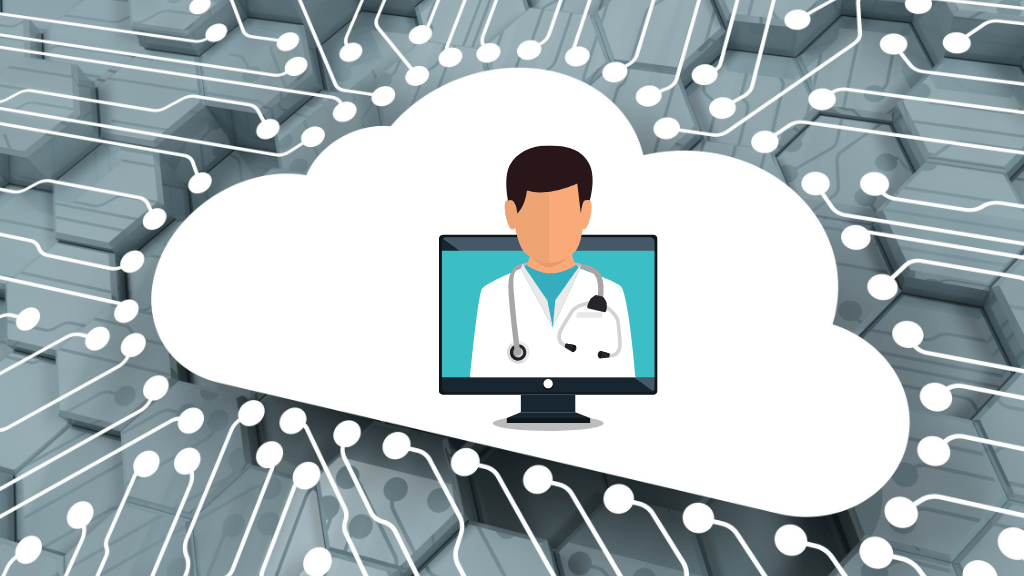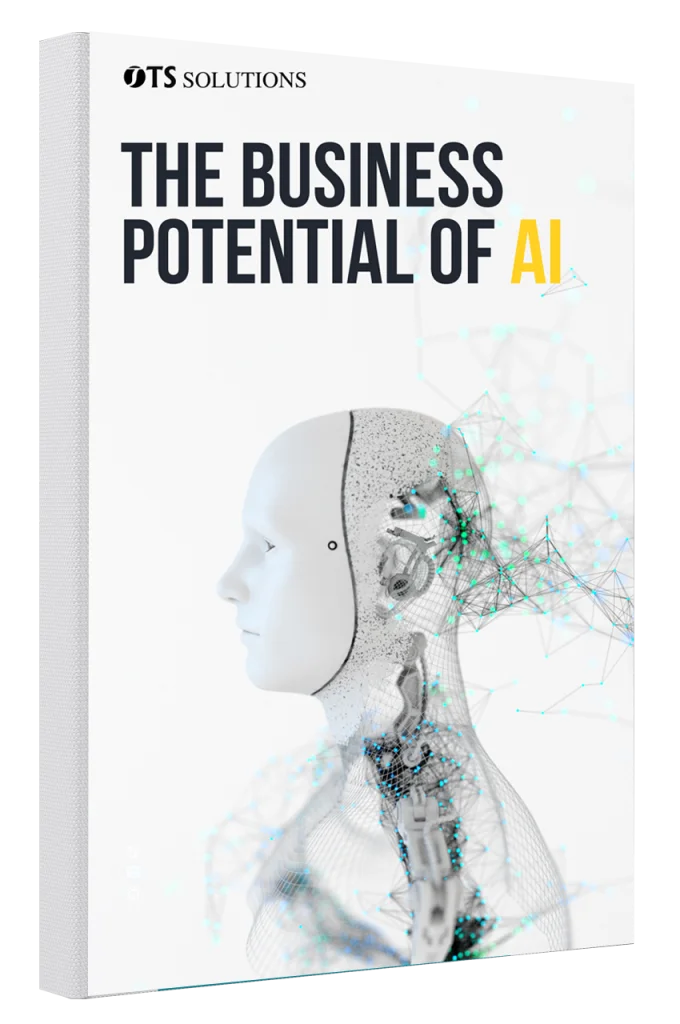How Cloud Technology is Shaping The Future of Healthcare Industry
Cloud Solutions for Healthcare Industry:
Cloud Computing has come a long way. When it was first introduced, it was meant to solve a very simple problem: how to share large amounts of data between people across different locations and different organizations. But since then, Cloud solutions for healthcare have evolved into something far more complex.
It has become a new way of delivering infrastructure to the business sector, which can be used for various purposes. This infrastructure comprises a scalable and reliable network that can be accessed from any location with the help of an internet connection. It’s just like a “real world” facility that is created as virtual and has no boundaries, physical or otherwise.
Need for Cloud Solutions for Healthcare
Cloud Computing for business is no longer a new idea in today’s digital world. It has become a necessity for businesses and organizations of all sizes. In healthcare, Cloud Computing has paved the way for a whole new world of possibilities in improving patient care, information sharing, and data retrieval. We have found that Cloud Computing is extremely helpful to the healthcare industry because:
- Cloud services offer access to patient histories while keeping them private and secure.
- It also provides patients with the option to share or keep their medical histories out of the hands of insurance companies or hospitals.
- With cloud app development, hospitals can share patient records instantly across facilities, reducing errors, saving time, and improving care.
- Having access to information instantly can also significantly reduce emergency room wait time. This benefit alone is crucial and can save lives during emergencies.
What Does Cloud Computing Have to Offer to the Health Sector?
According to a BCC report, the global healthcare cloud computing market is expected to reach $35 billion by 2022, with an 11.6% annual growth rate. The approach of implementing remote server access via the internet to store, manage, and process healthcare data is referred to as cloud computing for the healthcare industry.
Cloud solutions for healthcare have two major advantages in the healthcare sector. It has proven to be beneficial for both patients and health care professionals. Also, from the business perspective, cloud computing has proven to be advantageous in terms of lowering operational costs while allowing providers to provide high-quality, personalized care.
Patients who have lived up to immediate service delivery can now expect the same from the health care system. It also increases patient engagement with their own healthcare plans by providing access to their own healthcare data, resulting in better patient outcomes.
The modernization of healthcare data and its remote accessibility liberates both healthcare providers and patients while also breaking down geographical barriers to healthcare access.
Top 10 Benefits You Can’t Ignore for Cloud Computing in Healthcare
The benefits of switching to cloud services for healthcare are innumerable, but these 10 should help you see why hospitals, medical practices, and other healthcare businesses should consider cloud-based services for their organization. You can look at this list of 10 benefits of using cloud computing in healthcare today:
1: Lowers Cost
Cloud computing is based on the availability of computer resources, such as data storage and computing power on demand. Both hospitals and healthcare providers are no longer required to purchase hardware and servers completely.
Furthermore, there are no upfront fees associated with data storage in the cloud. You are bound to pay for the resources you use, resulting in significant cost savings. It is a useful option for storing patient data that can be accessed via a variety of healthcare apps and websites.
2: Improved Performance
Cloud services are becoming increasingly popular in the healthcare industry for a variety of reasons. It allows clinics and hospitals to focus on their core business while taking care of less important administration tasks like server maintenance and security. It also reduces costs and frees up staff time to provide better patient care.
In addition to its practical applications within healthcare systems, cloud computing is also seen as an efficient way of procuring services provided by third-party vendors through tendering processes or bidding wars.
It not only saves both organizations money but also streamlines the procurement process, thereby reducing delays and minimizing potential conflicts of interests between the parties involved.
3: Enhances Security
The concept of Cloud computing or Cloud solutions for healthcare is changing the way the healthcare system can handle and deliver information. Cloud computing is delivering secure, reliable, and efficient data services via the Internet and private networks. It also enables providers to shift costs to vendors and gain efficiency in data management.
The security features associated with cloud computing are also valuable in the healthcare sector. These include HIPAA compliance (which enhances privacy), automatic backups that protect data against loss or damage, and secure connections that prevent third parties from accessing confidential information without authorization.
4: Improves Patient Experience
Cloud computing also helps to improve patient care by making it easier for doctors to share medical records and videos between different hospitals or clinics. It also makes it possible for administrators to monitor data flows more easily and make changes as needed without having to reconfigure entire systems.
Furthermore, by utilizing transparency technologies like cloud app development and web portals, healthcare providers can communicate effectively with their patients no matter where they are located across town or around the world. Allowing consumers choices about how they want to receive services not only benefits them but helps keep healthcare costs down overall.
5: Better Access to Health Data
In a Cloud Healthcare setting, individuals use desktop applications and services that are hosted remotely on servers owned by the cloud provider. It allows patients to access their files from anywhere in the world with an internet connection.
Additionally, thanks to cloud-based software platforms, clinicians can access medical records from any device or location with an internet connection. It helps them keep track of patients’ progress diagnostics-wise as well as treatment planning-wise.
6: Protects from Disasters
Cloud computing has come a long way in the past few years and is now being used to protect healthcare systems from disaster. This technology allows for remote storage of data, software applications, and other sensitive information so that it can be accessed even if the original system is destroyed or inaccessible.
By using cloud solutions for healthcare, hospitals can continue providing care to their patients even in the event of a natural disaster. This type of architecture also gives agencies like Medicare more flexibility when it comes to future investments.
By storing crucial data inside the cloud instead of on individual servers, hospitals can minimize damage during disasters while still complying with government regulations regarding safeguarding patient records.
7: Increases Flexibility and Freedom
Cloud Computing has become the go-to platform for healthcare organizations because of its many benefits. These include improved flexibility, enhanced security, and decreased costs. Additionally, patients’ health data is also stored in the cloud, so family members can be kept updated on their loved ones’ medical status without having direct access to patient records.
Also, with the benefit of 24-hour availability, healthcare providers must significantly scale data storage and network requirements to meet service demands. Cloud technology can increase or decrease these storage requirements based on the needs of healthcare professionals.
Healthcare providers have also found that using Cloud Computing has helped them improve collaboration between departments as well as better coordination with other care facilities.
8: Helps Manage Financial Resources
Cloud Computing has become a popular option for healthcare providers because it helps manage financial resources. Cloud solutions can help to reduce costs by allowing hospitals to store data and applications in the cloud, which is then accessible from different devices and platforms.
It allows clinicians to access vital information even when they are not on their work computers or within reach of an internet connection. Furthermore, it reduces the time needed to deploy new software or updates due to its consistent accessibility across multiple devices.
9: Faster Decision-Making
Cloud Computing has become a cornerstone in modern healthcare, serving as an essential tool for faster decision-making. As it enables patients to store their health records, receive electronic medical consultations and treatments remotely from any location with internet access, and access various online tools that can help them manage their health more effectively.
For example, cloud computing can be used to monitor your blood sugar levels conveniently from anywhere at any time.
You can also use it to view current medication schedules and track your progress over time. Additionally, you can stay up to date on significant changes or developments in the latest medical technology by subscribing to updates via email or RSS feed.
10: Eliminates Wastefulness
In this regard, the best option is the modern workflows for your staffers and patients. Modern workflows reduce waste in your business by allowing users to focus on tasks related to their practice’s appropriate health codes, processes, registration requirements, insurance form packages, as well as HIPAA compliance form updates. Increased staff productivity also reduces the need for more of your own hours while increasing efficiency through software automation.
Conclusion
In conclusion, cloud-based systems are often faster and more reliable than traditional system software formulations. It makes them ideal for use in healthcare organizations where high-volume data entry is routine and quick response time is essential.
Also, healthcare providers who implement cloud solutions for healthcare typically experience reduced administrative costs because of the automation of various processes, such as paper filing, archiving, tracking patient care records, and reporting trends over long periods. Let us know your thoughts in the comment section below!
Need Help With Cloud Solutions?
Our experts can help you in developing your next world-class cloud software.
Frequently Asked Questions
What is Cloud healthcare?
Cloud healthcare is a technical term that refers to the use of remote cloud-based services for healthcare purposes. In simple words, healthcare on the cloud offers an alternative to using traditional software or desktop applications. The whole concept of cloud computing suggests that, rather than downloading and installing software, users will only have to access it online via the internet.
How is cloud computing changing the healthcare industry?
Healthcare organizations are facing both the need to control costs and improve the performance of IT systems. Cloud healthcare services are an effective solution to meet this challenge. It is why cloud computing is increasingly being adopted by healthcare providers as well as organizations in other sectors looking for solutions to meet these needs.
Cloud Computing is a powerful technology that can help in data storage and protect your healthcare information from disaster.
Cloud app development also enables you to access electronic files and applications from anywhere in the world, so you can work on projects without worrying about data loss or physical damage. Most cloud computing benefits are real, and many organizations are certain of the security, reliability, and scalability of cloud solutions.
What are the types of cloud computing in healthcare?
The introduction of innovative cloud computing technologies has played a vital role in today’s healthcare infrastructure, with the ability to increase efficiency, improve accuracy, and most importantly, improve patient outcomes.
As you know, cloud solutions are made up of four different cloud service models: Software as a Service (SaaS); Platform as a Service (PaaS); Infrastructure as a Service (IaaS); and Business Process as a Service (BPaaS). In healthcare, we can divide cloud computing into two categories:
1: Distribution Model
- SaaS: IT infrastructure is provided by providers, and clients deploy applications and operating systems.
- IaaS: Service providers provide an operating system and IT infrastructure, while clients deploy applications.
- PaaS: In general, providers bundle apps, an operating system, IT infrastructure, and other components into an easy-to-use platform.
2: Deployment Model
This model is intended for a community with similar preferences and goals to use the technology. Or a private and hybrid group, in which the technology incorporates multiple clouds with different access options. It is also the best option for ordinary people who use this technology.
Which cloud provider is best for healthcare?
The cloud market is exploding as healthcare providers are looking to lower costs, increase meeting compliance requirements and improve patient care. So, the answer depends on how you interpret the question. There are two ways to approach this question because the optimal cloud provider depends on how you want to use the cloud.
If you want to improve the way you and your staff complete administrative paperwork, then look at a SaaS solution that offers solutions that enable you to fill out forms, create peer groups, and communicate with patients from a mobile device or desktop. Some examples are Amazon Web Services (AWS) and Microsoft Azure.








